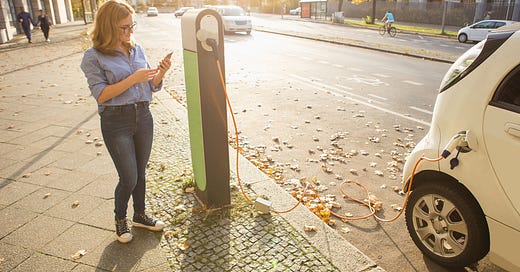To Accelerate Net Zero, Commit Early but Decide Late
The Counterintuitive Route to Effective Decisions About Climate Tech
A growing number of major companies are following the lead of Amazon, Microsoft, and Google to set aggressive targets for achieving net zero carbon emissions in their businesses. To hit those commitments, companies need to make important decisions about where to focus the time, energy, and money they have to invest in sustainability.
Will freight move across the country fueled with hydrogen, or will battery improvements make electric feasible? Will we replace plastics altogether, or will we get better at recycling? How will we address the intermittency challenges of solar and wind, which only produce power during the day or when the wind blows? All of these questions require answers at an industrial scale to make the decisions that will put us on track to meet even our most modest goals.
We Have Big Questions to Answer as Early as Possible
Every day these questions go unanswered is another day that more carbon dioxide enters the atmosphere and another day that we are further away from our net zero targets. It’s tempting to make fast decisions and move into rapid execution. If the decisions around things like our transportation infrastructure and energy grid were easy to change, this would be exactly the right thing to do. We could take our best shot, learn from the experience, and rapidly evolve our solutions. In fact, for things like messages to change consumer behavior, this approach works best because it accelerates our ability to develop effective solutions.
The climate change technology that we need most requires making decisions that, once executed, will not be easy to change. In the United States, we need to replace thousands of gas stations with electric vehicle charging bays. Not everyone has a garage with easy access to power. Most utilities are not yet generating 100% renewable power for those charging stations. We need a new, electrified transportation system, and we needed it yesterday.
It will take trillions of dollars and years of time to build out the infrastructure we need in 2050. We don’t yet know how to invest that time and money so that it’s not wasted on projects that don’t deliver results. Any commuter has seen highway projects drag on with one delay after another—and we know how to build highways. The risk of delay is much higher on all the things we don’t know how to build.
But, it is possible to make good decisions that accelerate solutions, even when urgency and risk are sky high. Just consider the COVID-19 crisis.
Early Commitments and Late Decisions Accelerated Vaccine Development
Keep reading with a 7-day free trial
Subscribe to Accelerate Net Zero to keep reading this post and get 7 days of free access to the full post archives.




